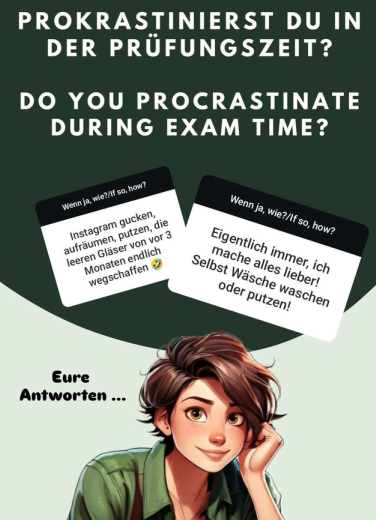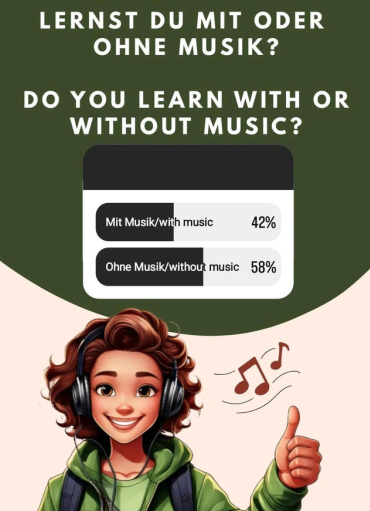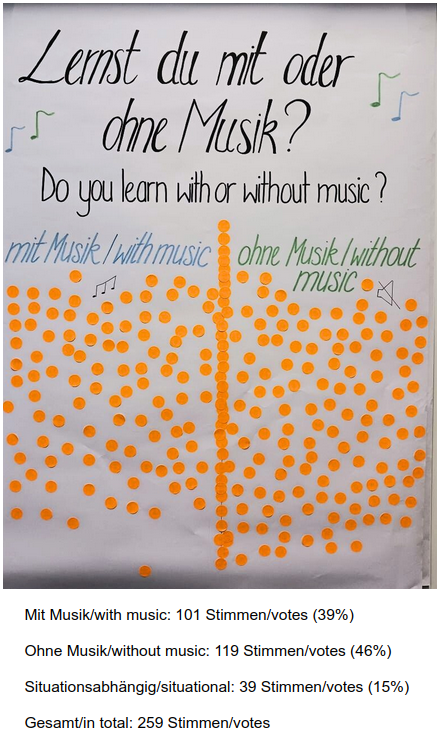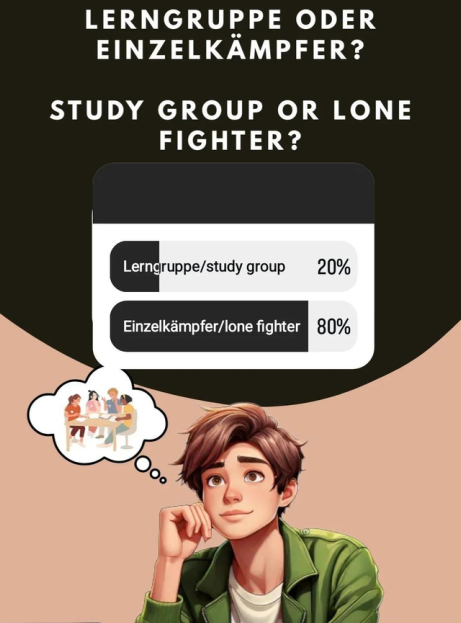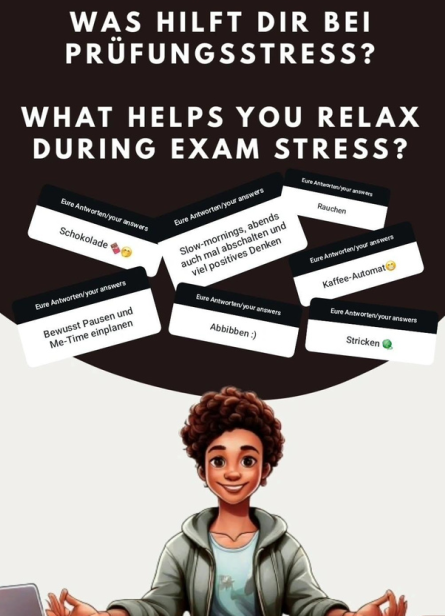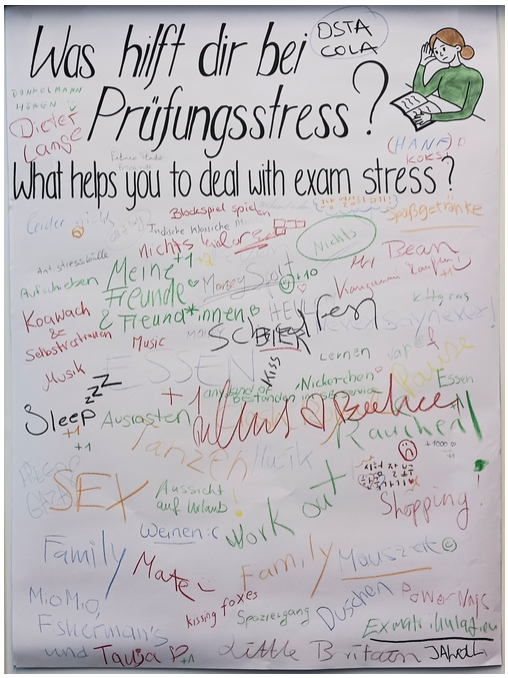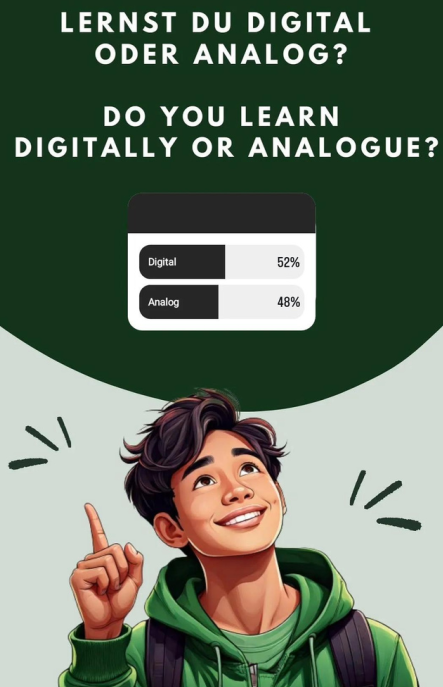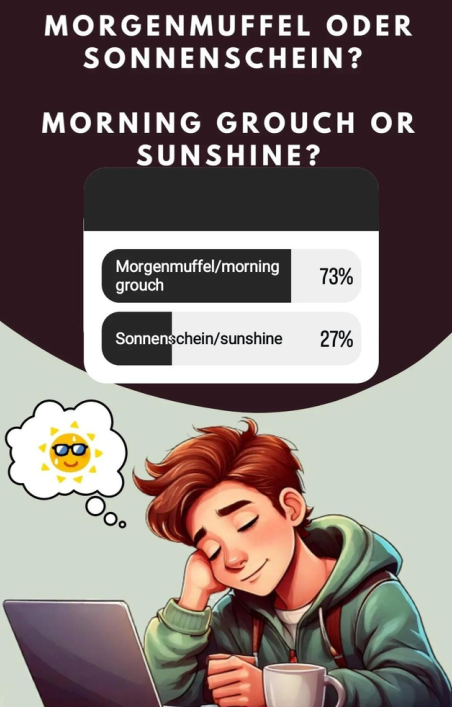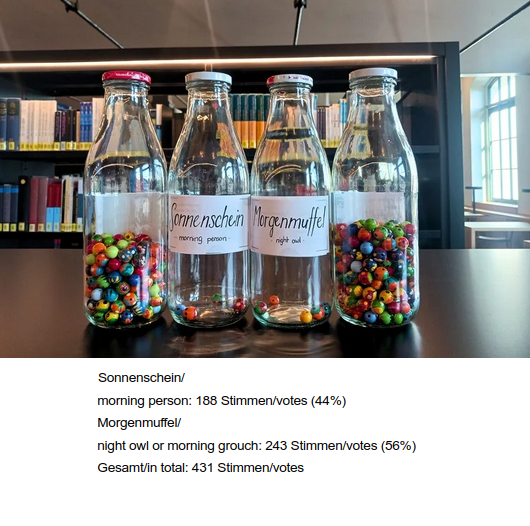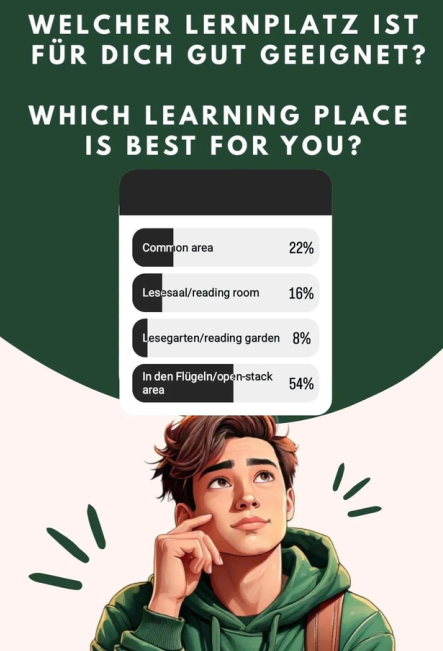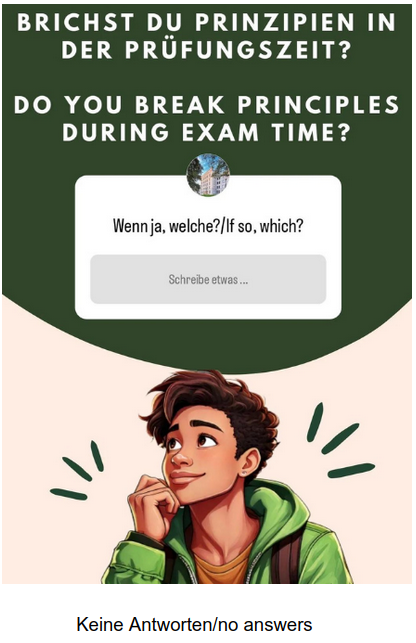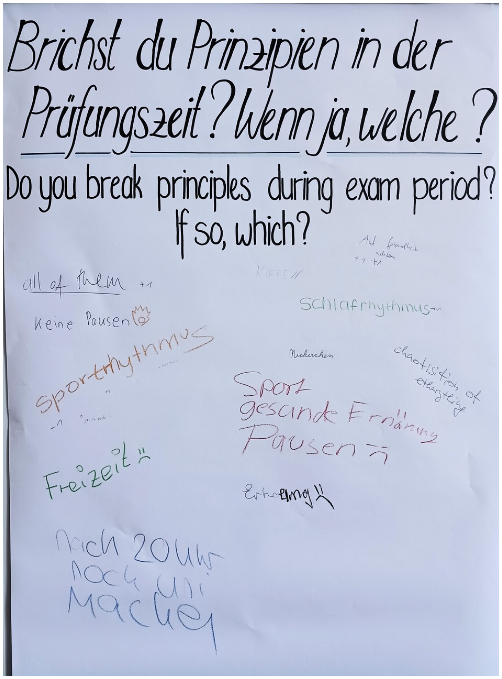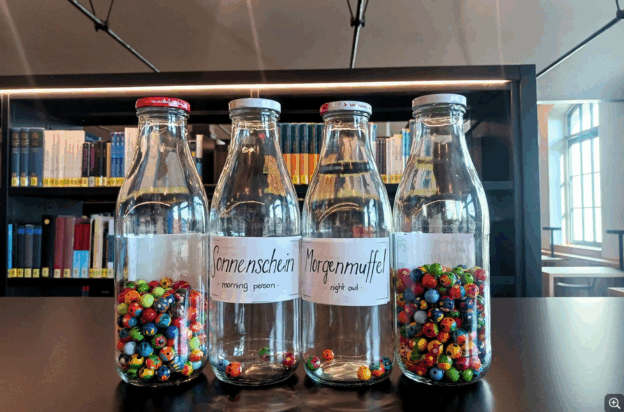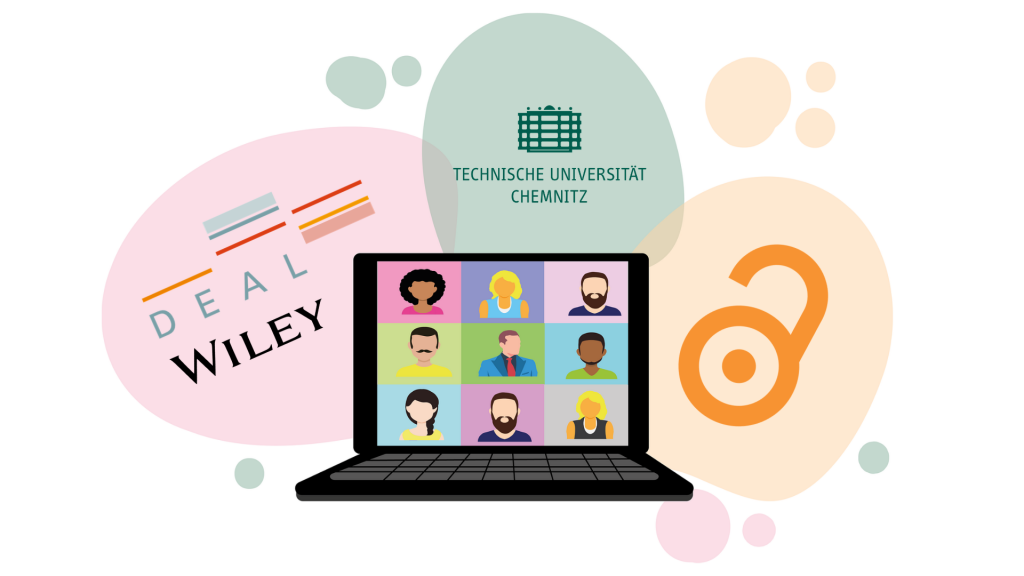Anyone who followed our Instagram channel closely during the last exam period or was a regular visitor to the university library will certainly have seen our survey on learning habits during exam stress. We don’t want to keep the results from you, so we have summarised the votes and opinions we received in this blog post. The specific answers can be viewed in the image gallery at the end of the post.
During the examination period of the 2025 summer semester, we asked students between 21 July and 17 August 2025 about their impressions and habits during this stressful time full of exams and assignments in order to get a small snapshot of the mood and encourage some discussion. A total of eight questions were formulated for this purpose, with a new question being published every Tuesday and Thursday. On Tuesdays, the question could be answered in an Instagram story; on Thursdays, a flipchart was set up in the foyer of the university library for answers to be written down, parallel to the online survey. The questions were:
- Do you procrastinate during exam time?
- Do you learn with or without music?
- Study group or lone fighter?
- What helps you relax during exam stress?
- Do you learn digitally or analogue?
- Morning grouch or sunshine?
- Which learning place is best for you?
- Do you break principles during exam time? If so, which ones?
The flipchart was used extensively throughout – for open questions, the space was almost always completely filled with answers, and for decision-making questions, an average of 345 people cast their votes. On Instagram, the response rate was heavily dependent on the wording of the question, as only three answers were received on average for open questions. Unfortunately, due to our statistical settings, we were unable to determine the exact number of votes cast on decision-making questions afterwards.
Evaluation of the results
The question ‘Morning grouch or sunshine?’ yielded a clear result: approximately two-thirds (64.5%) of participants considered themselves morning grouches, i.e. they work most productively in the afternoon or evening. In comparison, only 35.5% of participants said they were ‘sunshine’ types who use the morning to study. This distribution corresponds with our observations that there was only a moderate crowd of people in the library in the morning, while in the afternoon (almost) all workstations were occupied.
We had the impression that most of the participants were preparing for exams on their own. This assessment is confirmed by the finding that 80% of participants study alone. They probably mainly used our reading room (16%) and the open stack area (54%), which are well suited for independent work due to their quiet working atmosphere. In contrast, 20% of participants stated that they prepared for exams in study groups. If they used the library as a meeting place, they probably chose the common area (22%), whose informal atmosphere and space for exchange offer perfect conditions for this type of work. However, 8% of participants also rated our reading garden as a suitable place to study, which was ideal in the warm summer weather – and for an active break, our table tennis table was ready and waiting.
A narrow majority (52%) of participants prefer digital learning, while 48% favour analogue learning materials. A similarly close result was obtained when asked whether they learn with or without music: 52% of participants learn in silence, while 40.5% work with music in the background. For 15% of participants who used the flipchart for this question, their preference depends on the situation – this is how we interpreted the sticky dots on the dividing line between the two given answer options.
However, music is also good for relaxing or relieving frustration – depending on the genre you listen to. Music was mentioned several times as a remedy for exam stress, alongside other creative activities such as painting, drawing and knitting. Some distracted themselves with games or entertainment shows such as Little Britain and Mr Bean, while others spent time with family and friends. Other participants became active to clear their heads, for example through sport, walks, dancing or shopping. Classic remedies were also mentioned, such as eating, soft drinks, any form of caffeine and good old procrastination – who isn’t familiar with that? During exam periods, even tidying up, doing laundry and taking glass to the glass collection container can be fun – or you can scroll through social media until you realise with a shock how quickly time has passed. When stress becomes too much, some participants find it helpful to give free rein to their feelings by crying or losing their temper. Sometimes, sarcasm seems to be one of the only things that helps, as illustrated by the response ‘de-registration’. In addition to the remedies already mentioned, breaks were very important for many participants, as expressed in the following answers: breaks, planning time for oneself, slow mornings, power naps, switching off and getting enough sleep.
But it seems that the very things that help against exam stress are often neglected. This is confirmed by the results of the question “Do you break principles during exam time? If so, which ones?‘: Although breaks were considered very important, they are sometimes overlooked during exam stress, with leisure time and sleep also having to subordinate to the workload. Health also comes second, as evidenced by skipping workout sessions or unhealthy eating habits. Some participants also resort to a calming cigarette when stressed.
Perhaps you recognise yourself in some of the answers and have picked up some new ideas for dealing with exam stress. We hope you got through the exam period well and were able to recharge during the semester break. We wish you all the best for the new semester and remember that many other students feel the same way during stressful times. 🙂
Last but not least: Many thanks to all participants who took the time to answer the questions!
Picture gallery: Distribution of votes and answers
